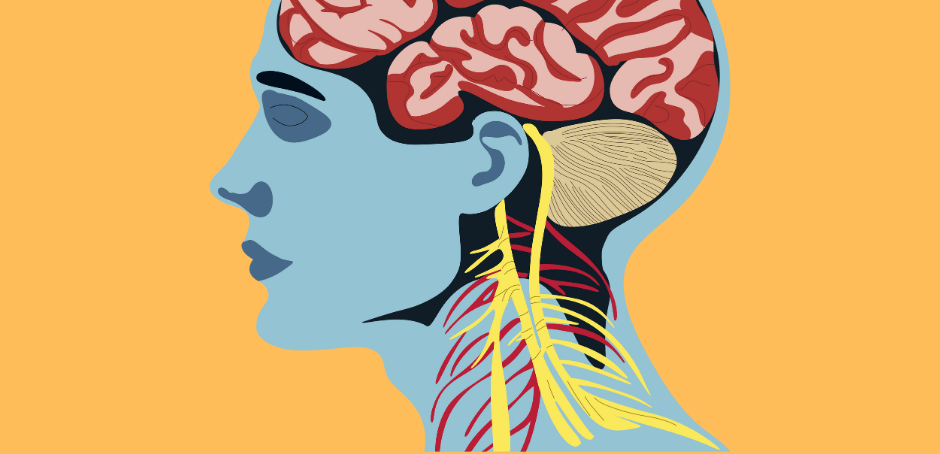
The Vagus Nerve
The Importance of Supporting good Vagal Tone
11/13/20252 min read


What Is the Vagus Nerve?
The Vagus nerve is the tenth cranial nerve, (of which there are 12 pairs) that arises from our brain stem. Vagus is Latin for ‘straying’ or ‘wandering’, named so for the fact that it is one of the longest nerves in the body, travelling from the brainstem, down through the neck and into the chest and abdomen, connecting the brain with organs such as the heart, lungs, and digestive tract.
The Vagus nerve forms a major part of the parasympathetic nervous system, which controls the body’s ‘rest and digest’ function, while the sympathetic nervous system prepares us for action (the ‘fight or flight’ response). This makes the vagus nerve responsible for promoting calm, balance, and recovery.
The Vagus Nerve’s Role in Digestion
When we eat, the vagus nerve sends signals to prepare the digestive system to receive and process the food and drink we intake. It helps stimulate:
Saliva and digestive enzyme production, aiding the breakdown of food.
Stomach acid release, which helps digest proteins.
Peristalsis, the muscle contractions that move food through the digestive tract.
The vagus nerve also supports the two-way communication between the gut and the brain, known as the gut-brain axis. This involves communicating information about hunger, fullness, and gut sensations between both.
If vagal tone (a measure of vagus nerve activity) is low, digestive processes can become less efficient, leading to gut symptoms like bloating, indigestion or constipation.
Stress and the Gut Connection
Chronic stress can significantly impact vagus nerve function. When the body remains in a prolonged state of ‘fight or flight’, digestive activity is reduced. In a sympathetic state, our digestion is not needed and blood is directed away from our digestive system to the periphery, for example, to our muscles and to dilate our pupils to help us run or fight and be focused. While this is fine in temporary moments of stress, constantly being in this state over time, can affect gut motility and enzyme production, contributing to digestive issues. Patients often notice that digestive symptoms flare up during busy or anxious periods which may be a sign of the mind-gut connection at work.
Supporting a Healthy Vagus Nerve
To support vagal tone it is important to find ways that help you manage stress, have a balanced diet, engage in exercise suited to you, allow time for rest and recovery, and ensure adequate and good quality sleep.
While there are exercises purported to help stimulate your vagus nerve, the most important element is to induce relaxation. Consistency is also key. Finding ways that help you decompress and have downtime to recover and restore regularly is vital and how that looks will be individual to you. Also important is seeking help where you need to address any health concerns, both psychological and physical.
Contact
The Body Project
Level 4,6 Help Street
Chatswood
NSW, 2067
(02) 9884 8758
fiona@topazhealth.au
Quick Links
FAQs
Osteopathy for Gut Health
Osteopathy for TMJ
Fees
Resources
Copyright © 2024 | Topaz Health | Privacy Policy | ABN: 141 202 953 15


Blues Point Practice
117 Blues Point Road
North Sydney
NSW, 2060
0422713396
You Little Beauty
Shop 7, 33 Tramore Place
Killarney Heights
NSW, 2087
0422713396
